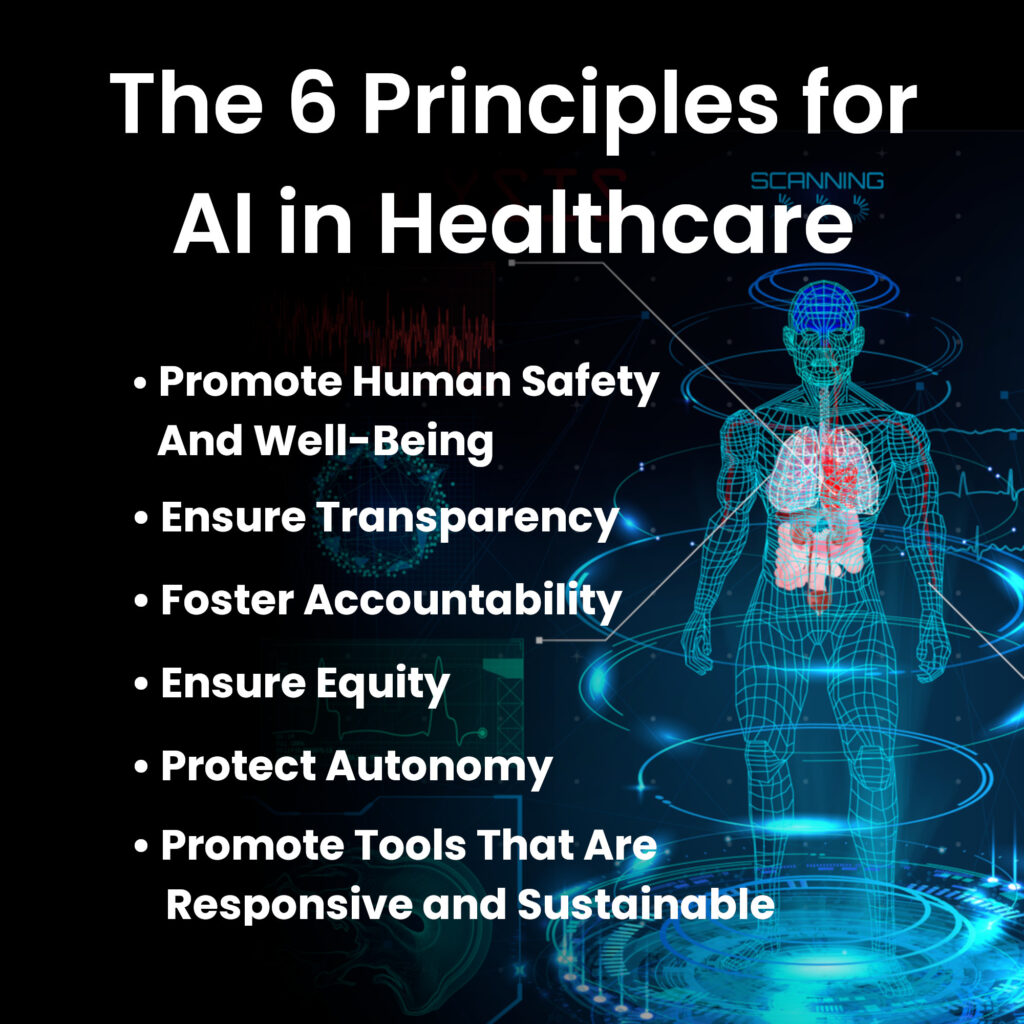Countless companies have started to leverage artificial intelligence (AI) technology and for good reason: it’s extremely versatile with the potential to be truly transformative. This is especially true in the healthcare industry, with organizations ranging from hospitals and clinics to pharmaceutical companies pursuing AI implementation. In healthcare, there are many complexities to consider, such as HIPAA regulations and patient safety. But when deployed properly, AI technology can bring a tremendous advantage. This may lead some to wonder: How is the medical field using artificial intelligence? And what does AI implementation in healthcare look like?
How is the Healthcare Industry Using AI?
AI technology is extremely versatile and in the medical field, it quite literally holds the power to save lives, although it’s far less dramatic than what you might see in the movies. From AI tools and AI-powered mobile apps, to AI-powered analysis, the possibilities are endless and ultimately, it’s fair to expect Hollywood-worthy artificial intelligence deployments that further revolutionize the industry. Let’s take a look at a few examples of AI implementations in healthcare.
- Xray, CT Scan and MRI Analysis – AI technology can be used to analyze diagnostic imaging in a manner that’s faster and far more accurate than what a human could achieve. AI can pinpoint anomalies with relative ease, making for a prompt diagnosis, even in cases where a diagnosis may have otherwise been elusive.
Prediction of Adverse Medical Events – When provided with data, an AI model can perform an analysis and generate a prediction with stunning accuracy. This can be used to predict medical events, such as the onset of seizure activity, the formation of potentially-deadly blood clots, an increased risk of heart attack or the worsening of a patient’s condition. So if you were to input a patient’s bloodwork values, vitals and other medical data into an AI model, that artificial intelligence technology can be used to make a prediction and / or treatment recommendation.
- AI Modeling for Drug Companies – Pharmaceutical companies are implementing AI for drug development and testing. Developing a new medication and testing to ensure that that drug is safe is a long and arduous process. Enter: AI, which can use modeling and simulations to predict problems and pinpoint issues that could have gone unnoticed, such as possible drug interactions, contraindications or adverse reactions to a medication.
- Guidance for Surgical Procedures – AI can be used to analyze diagnostic imaging such as xrays, CT scans and MRIs and make recommendations based upon this data. Recommendations could include the ideal incision location, the best plate placement on a fractured bone or the ideal path for accessing a deep-set brain tumor. Over time, machine learning can improve these AI algorithms too.
- AI for Medical Data Analysis – AI can be used to analyze large sets of data, which is then inputted to generate simulations or models. Artificial intelligence models are being used to simplify and streamline the pharmacovigilance (PV) process, which requires drug makers to detect and report adverse reactions. This reporting begins with clinical trials and extends through the time when a medication is approved by the FDA and made available on the open market. AI not only makes the PV reporting process faster and more accurate, but it can also be used to identify patterns and trends associated with those adverse events. Once identified, those patterns and trends can be used to make data-driven decisions for improving drug safety.
We’re also seeing an increasing number of patent portals that are equipped with AI that’s used to engage users by answering questions and even performing triaging functions.
AI Governance and WHO’s Report on AI Implementation in Healthcare
AI governance is a relatively new discipline thanks to the relative “newness” of this technology.
Over a span of 18 months, the World Health Organization (WHO) worked with experts in the healthcare field, human rights experts, Digital Transformation developers and ethics specialists to create a report titled Ethics & Governance of Artificial Intelligence for Health.
The WHO’s report explores AI ethical challenges, along with corresponding risks that may arise as organizations seek to implement AI in healthcare settings. The report includes a total of six “consensus principles” that ought to be considered when implementing AI in the healthcare field. They are as follows:
- Promote Human Safety and Well-Being;
- Ensure Transparency;
- Foster Accountability;
- Ensure Equity;
- Protect Autonomy; and
- Promote Tools That Are Responsive and Sustainable.
This report represents just one of many efforts to ensure that there are guardrails in place to manage the usage of the powerful technology that is artificial intelligence.
Considering Regulatory Compliance for AI Implementations in Healthcare
The regulatory compliance landscape is complex when it comes to AI implementations in healthcare. The healthcare industry is one of the most highly-regulated and as such, organizations must consider HIPAA regulations and how these regulations will affect your AI development project.
The Health Insurance Portability and Accountability Act of 1996 — better known as HIPAA — is a federal law designed to protect a patient’s health information. HIPAA governs how a patient’s information is collected, accessed and stored. With this in mind, you can see how HIPAA regulations can have a significant impact on AI implementations that entail data handling, data access and data storage, amongst other things. This underscores the importance of working with an AI development company that has experience working with clients in the healthcare sector. You’ll dramatically reduce the risks associated with this sort of Digital Transformation project when you have a development company that’s well-versed on HIPAA and the other regulatory compliance issues that an organization may be facing.
Using Machine Learning With AI Implementations in Healthcare
Machine learning — also known as ML — is a technology that pairs well with AI. Machine learning can be used to generate AI models, which are algorithms that drive AI processes. ML allows you to identify patterns and trends, which are then used to improve the AI model, allowing for more accurate predictions. Over time, machine learning allows you to improve the AI model, allowing for better performance.
The Digital Transformation development team here at 7T specializes in AI implementations in healthcare and other industries. Many of these AI deployments include machine learning technology too, making for a self-improving platform that generates a strong ROI that has the potential to increase over time. At 7T, we specialize in regulatory compliance and our team is well-positioned to develop an AI software platform that allows you to achieve compliance today and well into the future.
We’re guided by the approach of “Digital Transformation Driven by Business Strategy.” As such, the 7T development team works with company leaders who are seeking to solve problems and drive ROI through Digital Transformation and innovative business solutions such as artificial intelligence with machine learning capabilities for the healthcare field and beyond.
7T has offices in Dallas, Houston and Austin, but our clientele spans the globe. If you’re ready to learn more about implementing AI in a healthcare application, contact 7T today.


 Prediction of Adverse Medical Events – When provided with data, an AI model can perform an analysis and generate a prediction with stunning accuracy. This can be used to predict medical events, such as the onset of seizure activity, the formation of potentially-deadly blood clots, an increased risk of heart attack or the worsening of a patient’s condition. So if you were to input a patient’s bloodwork values, vitals and other medical data into an AI model, that artificial intelligence technology can be used to make a prediction and / or treatment recommendation.
Prediction of Adverse Medical Events – When provided with data, an AI model can perform an analysis and generate a prediction with stunning accuracy. This can be used to predict medical events, such as the onset of seizure activity, the formation of potentially-deadly blood clots, an increased risk of heart attack or the worsening of a patient’s condition. So if you were to input a patient’s bloodwork values, vitals and other medical data into an AI model, that artificial intelligence technology can be used to make a prediction and / or treatment recommendation.







